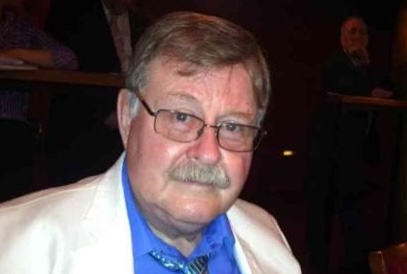Remembering, and appreciating, his willingness to challenge traditional authority to help the poor and middle class.
Aaron Dorfman and James Abernathy published a lovely tribute last week in The Chronicle of Philanthropy to the late Robert Bothwell, one of the founders of the National Committee for Responsive Philanthropy. (Dorfman is the current chief executive of NCRP, and Abernathy served on its staff and board.) Though NCRP and I have had our differences over the years, I’ve always admired their refusal to remain silent in the face of professional philanthropy’s arrogant willingness to impose its strategic designs on supplicant nonprofits. Along with Abernathy and another NCRP founder, the late Pablo Eisenberg, Bothwell “believed that the lack of open critiques of philanthropy could no longer be tolerated.”
Though it was hardly central to Bothwell’s career, it should also be noted that he was—ironically enough, given its contemporary association with conservatism—one of the pioneers of school choice. And even more ironically, he specifically encouraged low-income parents in Milwaukee, Wisconsin—subsequently the hotbed of the school choice movement—to appreciate its possibilities.
In 1970, the Nixon administration’s Office of Economic Opportunity announced it would seek out one city for an experiment with federal educational vouchers. As Jack Dougherty notes in his superb history More Than One Struggle: The Evolution of Black School Reform in Milwaukee, “Federal officials designated Robert Bothwell, the director of the Center for the Study of Public Policy in Cambridge, Massachusetts, to recruit applications for prospective cities.”
Community-run
Foremost among potential applicants was Milwaukee, because, as Bothwell realized, it hosted a thriving collection of central-city schools that had been abandoned by the Catholic church and subsequently reorganized by Blacks and Hispanics into non-sectarian, community-run educational ventures. They in turn had organized themselves into the Federation of Independent Community Schools.
Bothwell understood that the national NAACP officially opposed vouchers. Nonetheless, he found that local Black organizations, including a chapter of the Urban League, were in fact in favor of them, and eager to compete for federal funding of a local experiment.
Again quoting Dougherty:
“We’ve been interested in Milwaukee from the very beginning,’’ Bothwell told an audience at the predominantly black Northside YMCA. ‘‘Milwaukee already has ten independent schools which are new and prime to implement new programs,’’ he explained, referring to the federation schools and others like Urban Day (a nondenominational private school that opened in 1967 and served many inner-city black families, though it did not join the federation). But in order for Milwaukee’s voucher planning grant application to be considered by the Office of Economic Opportunity, it required approval by the local school board. After many hours of deliberation and several close votes, Milwaukee’s school board committees blocked the proposal from advancing, and Bothwell finally gave up and looked for pilot sites elsewhere. Nearly two decades would pass before another black and white coalition for vouchers would rise again.
When that “black and white coalition for vouchers would rise again,” though, it wouldn’t be a progressive, Bothwell-designed initiative. Rather, it would appear—at least to its critics—as a sinister conservative plot, funded by Milwaukee’s nefarious Lynde and Harry Bradley Foundation, to destroy the public schools. The alleged plot, however, involved the same set of schools celebrated by Bothwell, managed by the same set of Black and Hispanic leadership, pursuing the same proudly independent, community-driven and often racially conscious missions. It’s just that the progressive movement, in spite of Bothwell, had preferred to empower bureaucracies and experts rather than everyday low-income parents.
A larger question
Nonetheless, we have Bothwell to thank for encouraging Milwaukee’s local parent-managed schools to reflect on what they might accomplish within the framework of school choice—even if that meant associating with a foundation that the bureaucracies and experts, and NCRP, condemn.
But this early episode of progressive support for school choice, followed by its abandonment to conservatism, raises a larger question. Are there issues today that, phased more fortuitously, might actually feature an unorthodox, cross-ideological working alliance?
Some conservatives, for instance, have come to share Bothwell’s view that American philanthropy tends to privilege the rights of donors over those of the “donees”—even though the charitable tax deduction was intended to benefit working charities, not wealthy philanthropists. This new breed of “populist conservatives” has become, to paraphrase Dorfman and Abernathy, “more comfortable in challenging the traditional authority of philanthropy” because they too are “determined to ensure that poor and middle-class Americans” get the “resources they need to thrive.”
That has led some of us conservatives to join progressives in seeking reforms to our current out-of-control system of donor-advised funds. Although establishment conservative groups would like us to believe that DAFs are somehow part of a thriving Tocquevillian civil society, in fact they indefinitely waylay funds that should be en route to the working charities that Tocqueville championed.
In the spirit of Robert Bothwell, might there be other such issues?




